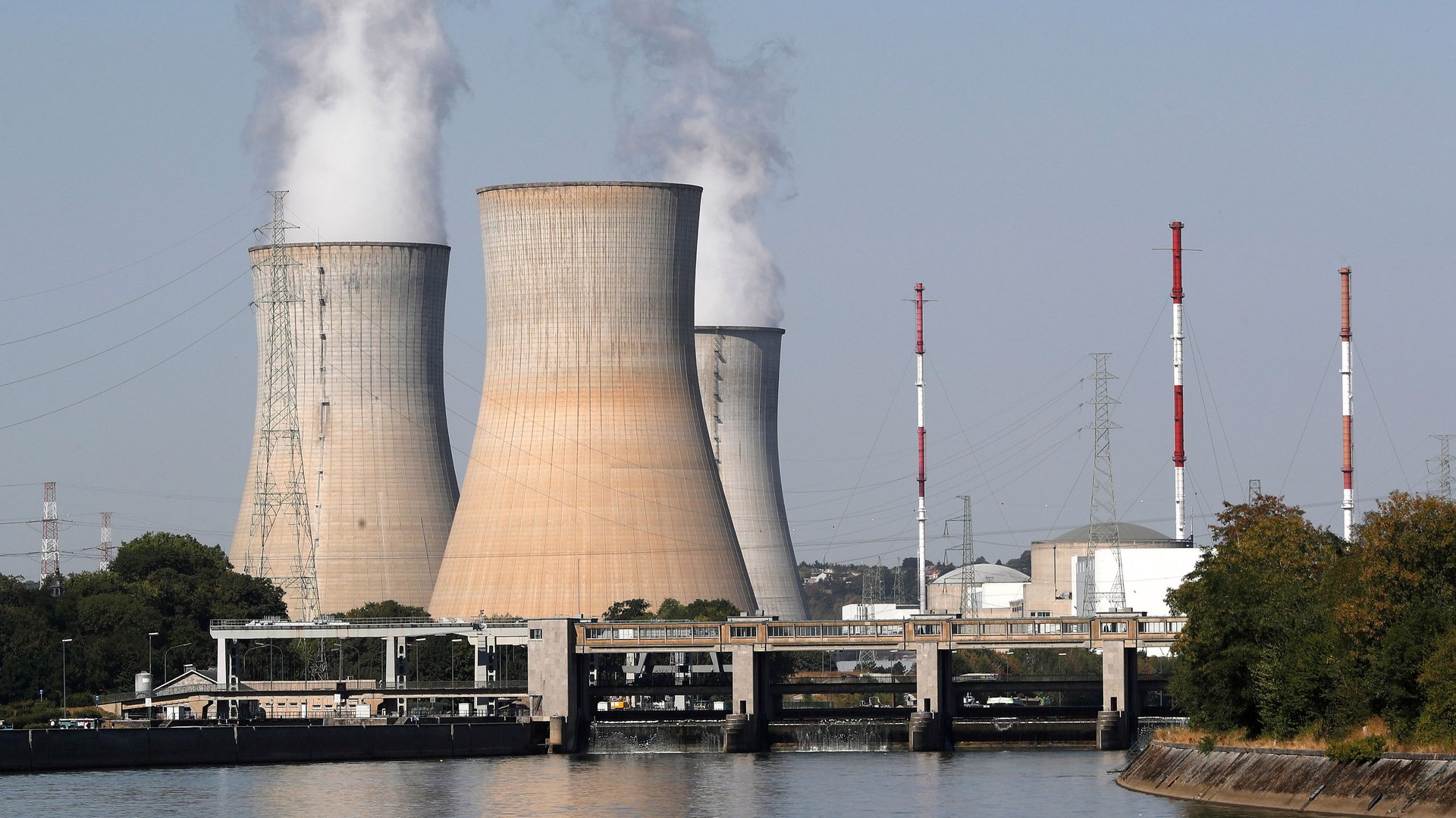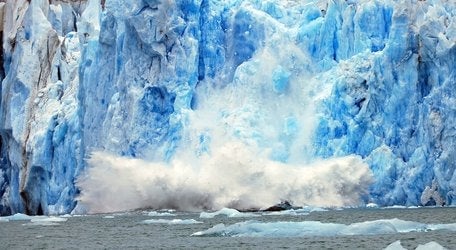The Race to Zero Emissions: solar demand, treeless land, and carless cities
Here’s what happened over the past week that helped or harmed the world’s chances of cutting greenhouse-gas emissions to zero.

Here’s what happened over the past week that helped or harmed the world’s chances of cutting greenhouse-gas emissions to zero.

Decreases emissions
1️⃣ Global oil demand may see its biggest contraction in history. The coronavirus response and economic slowdown could shave 10 million barrels per day off global consumption for now, estimated oil-trading firm Trafigura.
2️⃣ A 10-state carbon trading scheme rescued a Pennsylvania nuclear power plant. The 1,872-megawatt Beaver Valley plant, set for deactivation in 2021, will now stay open thanks to the governor’s decision to join the climate initiative.
3️⃣ BMW will dump half its internal-combustion engine models for electric powertrains by 2021. The German automaker sold fewer than 150,000 EVs in 2019, but projected it would have at least 1 million EVs on the road by the end of next year.
4️⃣ CarbonTracker gave the coal industry a financial health checkup (pdf), and the prognosis is bad. In every major market, it’s cheaper to build new renewables than coal plants. Even existing coal plants will cost more to run than new renewables by 2030.
5️⃣ The Dutch city of Utrecht is turning a business park into one of the world’s largest car-free urban centers. The new neighborhood will have homes for 12,000 people and serve an expected 20,000 bicycles.
Point….
Oil’s collapse may turn renewables into a lucrative bet. Investors have long argued renewables can’t compete with higher returns from oil and gas projects. “That argument no longer holds at $35 per barrel,” argues the energy consulting firm Wood Mackenzie. Not only are renewables delivering similar returns (or better!), but they come with lower risk since the marginal price of fuel—wind or sunshine—is always $0. That could accelerate an energy transition away from fossil fuels. While still the minority of global energy use, renewables are already attracting the lion’s share of new energy investment, topping $288.9 billion in 2018.
Net-zero (for now)
1️⃣ The UK’s financial regulator plans to require companies with premium listings on the London Stock Exchange to disclose their climate risk or justify an exemption. The Financial Conduct Authority is considering similar standards for all regulated companies.
2️⃣ Emissions are already falling as the world responds to the coronavirus, but the looming global recession, predicted by more than 40% of economists surveyed by the World Economic Forum, presents an even bigger likelihood of a sustained emissions drop.
3️⃣ Crashing oil prices are not detouring the auto industry’s electrification strategy. “We have a clear commitment to become CO2 neutral by 2050, and there is no alternative to our electric-car strategy to achieve this,” said Volkswagen’s strategy head Michael Jost.
4️⃣ Compressed hydrogen is “the first viable option” for seasonal energy storage on a 100% renewable grid, says global consulting firm DNV GL. Hydrogen produced from wind or solar energy in the summer could be pumped into salt caverns and depleted gas fields for winter use, but it might take decades to become cost-competitive.
5️⃣ Shrubs and trees are overtaking tundra and savanna in a warmer, wetter world. The loss of these treeless landscapes, 40% of the world’s area, will alter global carbon cycles and the climate.
…counterpoint.
Plunging EV sales. Rock-bottom oil prices. Global financial worries. It may combine to dampen any hopes of record growth in the renewables sector. “It will definitely put downward pressure on the appetite for a cleaner energy transition,” says Fatih Birol, head of the International Energy Agency. Market turmoil will derail ambitious government spending on cleaner technology and energy efficiency as fossil fuel alternatives drop in price and access to easy capital dries up, goes the bear argument. But uncertainty reigns. The fossil fuel industry has never seen quite this shock, says David Doherty, an energy analyst at BNEF, as plummeting demand from the coronavirus response meets an oversupply of crude from Saudi Arabia and Russia.

🔼 Increases emissions
1️⃣ Greenland and Antarctica, now on track for the worst-case warming scenarios predicted by the Intergovernmental Panel on Climate Change, are melting six times faster than expected.
2️⃣ The economic fallout from the coronavirus is expected to shave 8% off China’s planned 24 GW of new wind power installations in 2020. While factories have restarted, they are not yet operating at full capacity.
3️⃣ Bloomberg New Energy Finance forecasts that global solar demand will fall by almost 10% to 108 gigawatts. A looming recession could make 2020 the first year global solar installations decline since the 1980s.
4️⃣ Donald Trump announced his intention to fill the US Strategic Oil Reserve to bolster the unprofitable US oil industry. Critics called it a “shaleout,” while politicians seemed reluctant to shell out billions of taxpayer dollars to prop up oil companies.
5️⃣ Ohio’s power sector is switching off coal, but its embrace of $5 billion in planned natural gas plants will lock in fossil fuel emissions for decades.
Stats to remember
As of March 15, the concentration of carbon dioxide in the atmosphere was 414.24 ppm. A year ago, the level was 413.40 ppm.
For Quartz members
An industry is born. First-time parents are slightly older and often more financially stable than they were 40 years ago. The distinction is a biological tradeoff that has turned having children into a multibillion-dollar enterprise. Learn more with our field guide to the business of fertility.
Have a great week ahead. Please send feedback and tips to [email protected].